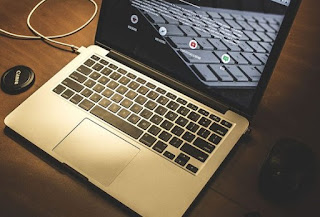Apple recommends that you do not leave your MacBook in charge at all times. Some other manufacturers say that there is nothing to leave it in charge all the time while others recommend it for no reason.
Do you have to leave your laptop on charge even when you are not on the move? What is better for the battery? It is a difficult question and there are various recommendations, some even controversial.
You can not overcharge a laptop battery
It is very important to understand the basics of how a standard Li-Ion battery and a lithium polymer battery work. Myths about batteries are numerous.
When charging a battery to 100%, it is enough to leave the computer connected to the power supply because the charger will stop charging. When the battery drops slightly, the charger turns on again.
Therefore, there is no risk of damaging the battery by "overcharging."
All batteries are consumed over time
The laptop battery will be consumed over time. The more charge cycles you put on it the more it will be consumed. Different batteries have different charging cycles but you can usually expect up to 500 full cycles.
This does not mean that you should avoid discharging the battery. Storing batteries at high charging capacity is worse for it. On the other hand letting a battery fully discharge every time you use it is bad too.
There is no way to tell your laptop that the battery is always at 50%, which would be ideal. Also high temperatures will consume battery faster.
If you want the laptop battery to live, then try in most cases to be in the charging capacity of 50%. Thus increasing its lifespan.
Remove the battery to avoid overheating
One thing is for sure: heat is harmful. If your laptop has a removable battery, it would be better to do it instead of leaving it constantly charging for a long time.
This way the battery will not be exposed to unnecessary heat. Such an action is very important especially when playing intense games. However most modern laptops do not have removable batteries so this tip is of little value.
Eventually left in constant charge or not?
In fact it is not known what is most harmful to the battery. Leaving it at 100% will shorten its lifespan but constantly sending it towards zero will also have the same effect.
Essentially whatever you do the battery will be consumed over time and lose capacity. Thus they are built to function. The question is what needs to be done to die more slowly?
Apple recommends that you do not leave your MacBook in charge at all times. Some other manufacturers say that there is nothing to leave it in charge all the time while others recommend it for no reason.
Apple advised that the laptop battery be charged and discharged at least once a month but no longer recommends it. But placing the laptop in front of full charging cycles helps calibrate the battery.
Thus the laptop knows more accurately how much battery is left. If your battery is not properly calibrated, Windows thinks you have 20% of it when it is actually at 0%.
By letting the laptop battery fully discharge and then charging it to 100%, the battery circuits learn how much energy is left in it. Apple says that for the modern MacBook such a process is no longer needed.
It is worth noting that the calibration process does not improve battery life nor does it help conserve energy better. It will only give you a more accurate calculation of the energy left in it.




No comments:
Post a Comment